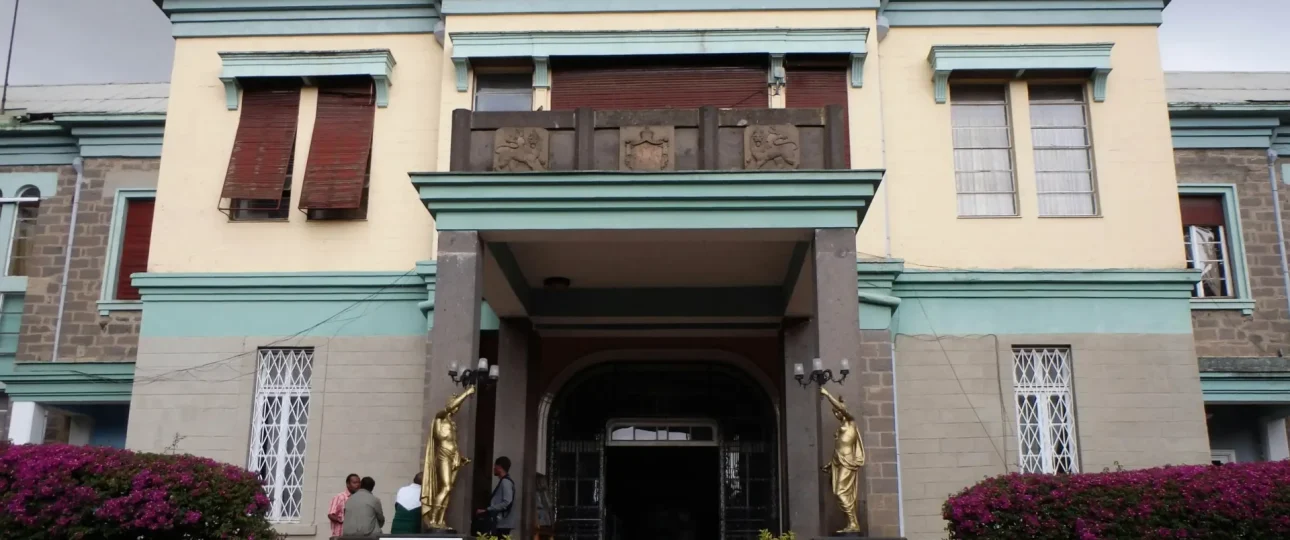Ethnological Museum Addis Ababa
The Ethnological Museum, located on the main Sidist Kilo campus of Addis Ababa University (AAU), is a captivating institution dedicated to the preservation, study, and presentation of Ethiopia’s rich cultural heritage. The museum was established in 1955 with the intention of conserving the nation’s heritage, conducting pertinent research, and supporting the educational endeavors of the AAU.
Remarkably, the museum is housed in the former palace of Emperor Haile Selassie, adding a layer of historical significance to its location. This grand building also contains a library and the administrative offices of the university.
As a visitor, one is greeted with an introduction to the history of the university, complemented by a collection of contemporary photographs. The museum’s extensive collection exceeds 13,000 items, including an array of religious and secular manuscripts, ceremonial items, icons, paintings, as well as gold and silver embroidered robes, umbrellas, crosses, and books. Some artifacts even date back to the early Aksumite period.
The items on display have been acquired through various means, including donations from benefactors, purchases, and inheritances. The collections are meticulously preserved and displayed in well-lit showcases for optimal viewing, handled by a team of trained conservationists.
As an affiliate of the university, the Ethnological Museum actively participates in research projects related to heritage and museum studies. It also benefits from the support of the Society of Friends of the Institute of Ethiopian Studies (SOFIES).
The museum is open to visitors from Monday to Sunday, excluding public holidays. Guides are available at all times to provide information and insights about the collections. Entrance fees are charged at different rates for adults, students, and those wishing to photograph or record the collections.

